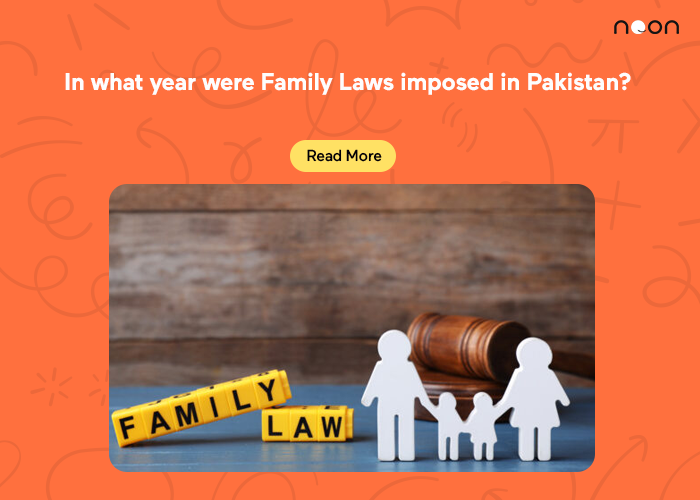Family laws of Pakistan have been in place since 1961 and were created to give Muslim citizens a way to regulate their marriage, divorce, and custody rights. The first changes made to them were in 2006, followed by another update in 2011. In 2017, the Family Laws in Pakistan underwent yet another amendment. This blog post will explore the history of the Family Laws in Pakistan and how they morphed over time.
The history of Family Laws in Pakistan
The first family law in Pakistan was the Muslim Family Law Ordinance, which was passed by the Parliament in 1961. This law regulated marriage, divorce, and custody among Muslims. In 1974, the Parliament passed the Family Courts Act, which established family courts to adjudicate disputes relating to marriage, divorce, and custody. The act also created a system of mediation and conciliation for resolving family disputes. In 1979, the Parliament passed the Dissolution of Muslim Marriages Act, which allowed Muslim women to obtain divorces on grounds of cruelty, desertion, and mental or physical illness of the husband.
The different types of Family Laws in Pakistan
There are different types of family laws in Pakistan which were imposed in the year 1979. The Family Courts Act, 1964 deals with the matters of divorce, alimony, child custody and maintenance. The Muslim Family Laws Ordinance, 1961 deals with the matters of marriage, polygamy, divorce and inheritance etc. The Special Marriage Act, 1954 deals with the marriage of non-Muslim citizens of Pakistan.
The pros and cons of Family Laws in Pakistan
Since the year 2000, Pakistan has had a set of Family Laws which contain provisions for divorce, child custody, and other family matters. The laws were designed to protect the rights of women and children, and to promote gender equality. However, there are some drawbacks to the system.
One criticism is that the laws are not always enforced. This can be due to a lack of awareness among the general population, or to corruption within the legal system. Another problem is that the laws are not always clear, and it can be difficult to get a divorce or child custody ruling without hiring a lawyer. This can be expensive, and puts an added burden on already vulnerable families.
There are also some positive aspects to the Family Laws in Pakistan. They have increased awareness of women’s rights, and made it easier for women to get divorced if they are in an abusive marriage. The laws have also helped to reduce child marriages, and give more rights to children in terms of custody and maintenance payments. Overall, while there are some flaws in the system, the Family Laws in Pakistan have had a positive impact on society.
How to find the right Family Law for you
When it comes to finding the right family law for you, there are a few things to keep in mind. First and foremost, you should make sure that the lawyer you choose specializes in family law. This will ensure that they are up-to-date on the latest changes and developments in the field, and that they understand the unique complexities of family law cases.
Another important factor to consider is whether or not the lawyer has experience handling cases like yours. While all family law lawyers have experience with divorce, child custody, and other common issues, some may have more experience than others when it comes to more complicated cases such as asset division or international custody disputes. Be sure to ask about a lawyer’s experience before making your decision.
Finally, you should also make sure that you feel comfortable with the lawyer you choose. This is an important relationship, and you need to be able to trust and communicate openly with your lawyer. Schedule a consultation with a few different lawyers before making your final decision.
Conclusion
The family laws were imposed in Pakistan in the year 1961. Since then, there has been a great debate on whether these laws are fair to women or not. Some believe that these laws protect the rights of women and give them equality in society, while others argue that these laws are discriminatory and do not provide enough protection to women. However, the fact remains that the family laws have helped to improve the status of women in Pakistan and have made them more equal to men.
Noon app is a great way for students to learn about other subjects. With over 10,000 lectures available, you can learn from teachers across the globe. The Noon app is also free, so you can start learning without spending any money. Additionally, the app is interactive, so you can attend live classes and use fun quizzes and practice questions to improve your understanding of the material. If you’re looking for a comprehensive and affordable education solution, the Noon app is a great option.
